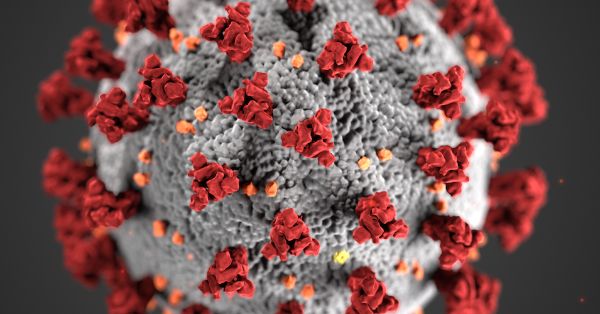Mistrust Compels Anti-Authoritarian Epidemiology In The Time Of COVID-19
Now more than ever, we must welcome anti-authoritarian epidemiology.
by Chris Hartmann

Trust in government is crucial for securing public health, particularly during crises. Amidst historic levels of mistrust in government, concerns have arisen about the accuracy, veracity, and transparency of COVID-19 data reporting by public governments and their strategies to contain the pandemic. Consequently, in the last month, we have witnessed the emergence of “anti-authoritarian epidemiology,” a term I use to denote the democratization of health data to hold governments accountable and promote health.
Globally, approximately one-half of the population trusts their local and national government. Whereas 80% of respondents trust scientists to address societal challenges, only 42% trust government leaders to do the same.
In the U.S., which currently accounts for one-quarter of all confirmed COVID-19 cases and deaths, polling suggests that trust in medical scientists (84%) and the Centers for Disease Control and Prevention (77%) for accurate information about COVID-19 remains high. However, the Pew Research Center reports that public trust in the federal government has fallen from 77% in 1964 to an all-time low of 19% in 2019. Importantly, too, public trust in government leaders and local and state governments is low.
Epidemiology, or the study of the causes and the distribution of health effects like diseases in a population, plays an integral role in understanding the COVID-19 pandemic. Around the world epidemiologists are working individually and with community groups, academic organizations, the media, and other non-governmental groups to provide vital and up to date COVID-19 morbidity and mortality statistics. For instance, Johns Hopkins University operates perhaps the most well-known non-governmental COVID-19 dashboard for aggregating and visualizing the global extent of the pandemic.
But in the absence of widespread trust in government leaders, some groups have created COVID-19 dashboards to defy and to refuse to blindly submit to authority. Their COVID-19 respositories complement, amend, and repudiate official government reporting. In doing so, anti-authoritarian epidemiology holds political leaders accountable for the data that they publish and questions the appropriateness of subsequent guidelines. Importantly, these data are especially valuable for understanding the extent of COVID-19 cases and deaths at the local level.
In Nicaragua, for example, the COVID-19 Citizen Observatory (Observatorio Ciudadano COVID-19, hereafter CO) aggregates data from an anonymous grassroots network of healthcare professionals, researchers, and community leaders. The CO currently reports more than two and one-half times as many COVID-19 cases and nearly twenty three times as many COVID-19 deaths as Nicaragua’s Ministry of Health, which denies the gravity of the pandemic and fired healthcare workers for voicing concerns about the pandemic. Data from the CO are regularly referenced in Nicaragua’s largest newspaper (La Prensa) and are shared widely on FaceBook, WhatsApp, and other social media and messaging platforms.
And in Florida, USA, Rebekah Jones was purportedly fired by the state health department for refusing to manipulate data for political purposes. She has since launched an interactive dashboard under the name Florida COVID Action to correct what she views as a deadly and intentional disinformation campaign by Governor Ron DeSantis and the state health department. Jones’s dashboard shows that much of Florida was ill-prepared to ease restrictions in May. The state has experienced record spikes in COVID-19 cases in June and July, resulting in 54 hospitals reaching capacity for available ICU beds.
Anti-authoritarian epidemiology is not without potential drawbacks. Certainly, conflicting COVID-19 reports by state and non-state authorities might sow public confusion, and disingenuous information could cause irreparable harm or contribute to mistrust of health authorities.
Therefore, anti-authoritarian epidemiology must follow strict scientific and ethical standards. At a minimum, conflict of interest and funding statements, data analysis and collection methodology descriptions, and access to raw data must be provided. And compliance with privacy and confidentiality, among other ethical guidelines, is essential.
Still, the advantages of anti-authoritarian epidemiology are many: it democratizes access to COVID-19 data, urges government accountability, and provides an alternative view of increasingly politicized epidemiological data. Now more than ever, we must welcome anti-authoritarian epidemiology.
Chris Hartmann, a doctoral candidate in geography at the Ohio State University, examines the political economy of Nicaragua.


 ICHRP: ICHRP Condemns Harassment And Threats Against Victims Of Duterte’s War On The Poor
ICHRP: ICHRP Condemns Harassment And Threats Against Victims Of Duterte’s War On The Poor World Vision: 3.5 Million Displaced Following Myanmar Earthquake And Ongoing Internal Conflict
World Vision: 3.5 Million Displaced Following Myanmar Earthquake And Ongoing Internal Conflict World Butchers Challenge: World’s Top Butchers From 14 Nations Go Knife-to-Knife In Paris
World Butchers Challenge: World’s Top Butchers From 14 Nations Go Knife-to-Knife In Paris Save The Children: ‘It Was Terrifying’ - Children Prepare To Spend Myanmar New Year Festival In Shelters Following Earthquake
Save The Children: ‘It Was Terrifying’ - Children Prepare To Spend Myanmar New Year Festival In Shelters Following Earthquake Global Forest Coalition: Global NGOs Call On International Maritime Org To Reject Biofuels And Commit To Truly Clean Energy
Global Forest Coalition: Global NGOs Call On International Maritime Org To Reject Biofuels And Commit To Truly Clean Energy Australian Catholic University: Principals Navigate Growing Challenges As Anxiety, Depression Increase And Violence, Workloads Intensify
Australian Catholic University: Principals Navigate Growing Challenges As Anxiety, Depression Increase And Violence, Workloads Intensify